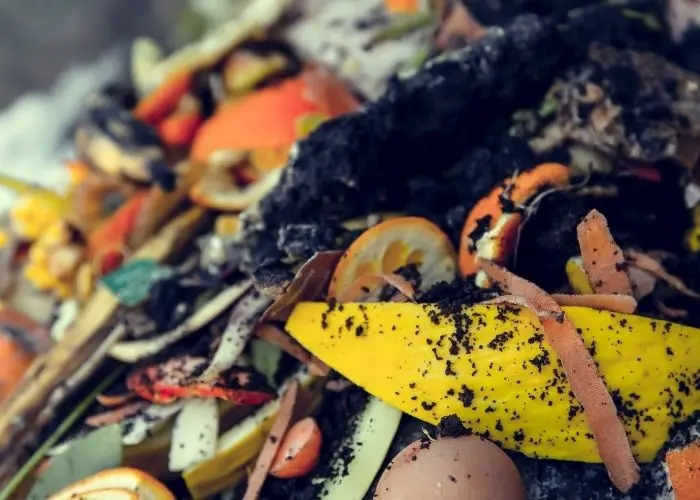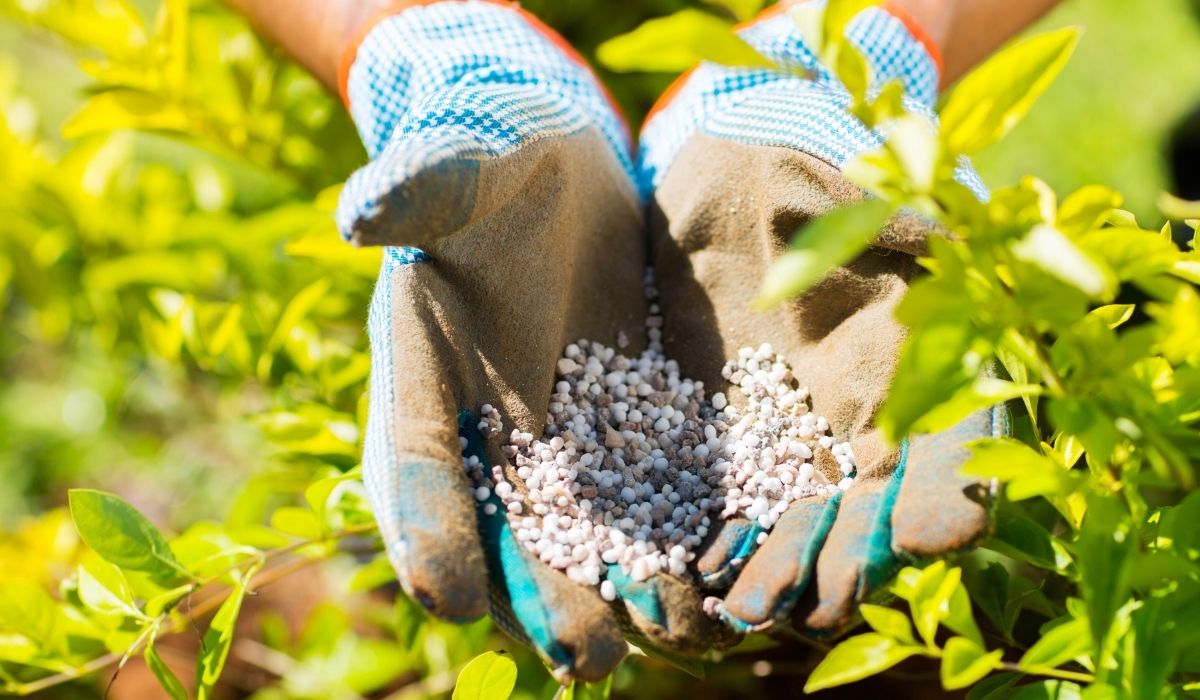It is essential to learn how to customize garden fertilizer according to the needs of your plants and the type of fertilizer you are using.
Fertilizers come in many forms, and it is important to customize fertilizer according to the plant and soil. Some fertilizers are liquid, while others are in the form of granules. Some fertilizers release their nutrients slowly, while others provide fast-release nutrients. It’s important to research fertilizers before deciding what’s best for your plants.
To provide your plants with the right fertilizer at the right time, it is best first to learn how to customize garden fertilizer.
Contents
How to Customize Garden Fertilizer?
The first step in customizing fertilizers is to understand which fertilizer you are currently using.
- If your fertilizer contains high levels of nitrogen, phosphorus, and potassium (N-P-K), then customize it with calcium and magnesium.
- If you do not know what type of chemical makeup your fertilizer has, customize by adding general garden mulch and compost materials. An example would be a 5:3:2 ratio; customized with 1 part calcium carbonate for each part N-P-K, or five parts compost materials for each part N-P-K.
- Customize by avoiding fertilizers that contain ammonium. Ammonium nitrate fertilizer is not suitable for the vegetable garden because it kills fungi and insects that are beneficial to plant growth.
- Customizing garden fertilizer by mixing compost materials such as grass clippings, leaves, and organic matter into the soil helps customize your fertilizer for your specific needs. Mixing high-nitrogen fertilizers with carbon-rich compost provide a slow release of nutrients over time while improving soil structure and aeration.
- Adding lime or wood ashes (if you use hardwood) can customize garden fertilizer depending on the type of soil, to provide magnesium and potash, respectively. Bagged organic fertilizers do not have a set recipe to customize fertilizer, which is why it is important to know the chemical makeup of your fertilizer.
- Garden mulch and compost materials can be added to customize garden fertilizer by adding more organic matter, providing a slow release of nutrients over time.
- Mixing in organic fertilizer with high nitrogen levels can customize garden fertilizer according to the plant’s needs, as well as provide enough nutrients such as phosphorus and potassium. It is important to know the nutrient makeup of specific fertilizers before customizing garden fertilizers. You can customize fertilizer by mixing it into the soil or combining it with other fertilizers.
- Adding composted manure along with lime, if needed, will customize the soil pH level and provide trace amounts of many essential nutrients, such as calcium and magnesium. This will happen at a slow rate which prevents burning plants during their growing stages.
Read more about How Deep Should A Raised Garden Bed Be
Organic Fertilizers
Aerating your soil with compost provides fertilizer for plants by adding one type of nutrient that is necessary for the growth of most vegetables. It also increases aeration so oxygen can reach the roots of the plants more quicker. Secondly, using eggshells as a source of calcium will customize garden fertilizer appropriately when mixed with organic matter, or mixed into potting soil before planting seeds.
Customize garden fertilizer by providing nutrients such as nitrogen and phosphorus slowly and providing micronutrients over time.
Adding blood meal, bone meal or seaweed extract can customize garden fertilizer, depending on the type of plants grown in your garden.
Sewage sludge is also highly recommended to customize soil for acid-loving plants, such as blueberries and rhododendrons. Composted leaves can customize garden fertilizer by adding potassium if needed, while also improving drainage and aeration.
Fish emulsion provides nitrogen, but it does come with a foul smell. It also contains 20 different types of trace minerals, so it can customize garden fertilizer by providing all chemical compounds required for plant growth, without damaging soil structure over time.
All these examples lead back to how fertilizers are customized based on the makeup of the specific plant you’re growing, and what is available in your organic compost materials.

A List of Common Fertilizers Used in Gardening and Their Functions:
-
Feather meal
Provides nitrogen and amino acids.
-
Blood meal
Provides nitrogen.
-
Bone meal
Provides phosphorus and calcium.
-
Rock phosphate
Provides phosphorus.
Vegetable fertilizer recommendations, according to plant type:
- Acid-loving plants such as blueberries, rhododendrons, azaleas, and camellias require a fertilizer with a lower pH level.
- A small amount of iron sulfate can customize garden fertilizer in this case by providing needed micronutrients for healthy growth.
- Azaleas also require a high level of organic matter when planting them in the soil by customizing garden fertilizer in this way.
Most vegetables require rich compost materials or manure from animals to customize garden fertilizer. For example, nitrogen-fixing legumes can customize garden fertilizer by adding more nitrogen into the soil; but they must be well-rooted to customize the garden fertilizer because this will help the roots grow deep into the soil and receive enough nutrients.
Root vegetables need high levels of phosphorus such as phosphate or bone meal added into the soil during planting. This is to customize garden fertilizers appropriately so that they develop healthy root systems.
Lawn fertilizers should be customized based on any diseases present, due to not knowing how specific fertilizers affect each plant type. It’s important to use all-natural ingredients when customizing your lawn fertilizers.
Fertilizers are also used for flowers. The most common fertilizers used for flowers are similar to vegetable fertilizers; except they differ in the fact that they are generally organic or naturally derived. The main group of flower fertilizers is known as “bloom-type” fertilizers, which customize garden fertilizers by providing NPK (nitrogen, phosphorus, and potassium).
Learn more about The Right Fertilizer For Strawberries
Final Thoughts
Customize garden fertilizer for your plants by taking up the specific type of nutrients that they need.
Nitrogen is required for plant protein synthesis, so it is taken in through the roots and converted to protein in order to customize garden fertilizer such as amino acids.
Phosphorus also contributes to enzymes and cells; so plants customize garden fertilizer by converting it into ATP. This is necessary for all energy transfer processes.
All these nutrients are usually found in organic compost materials. Some fertilizers provide valuable micronutrients alongside nitrogen, phosphorus, calcium, zinc or magnesium; depending on where they came from originally.
Learning to customize garden fertilizer is like having your own personalized garden tools to help you progress in your gardening journey!
Read more about 17 Essential Micro Nutrients And Macro Nutrients For Plant Growth
Frequently Asked Questions
What is the Best Fertilizer for Gardens?
In order to get the most from your garden, you need to use the best fertilizers available. There are many types of fertilizer and they are all very good, but not all are equally effective. The best fertilizer for your garden will depend on the type of plants you are growing, how many you want to grow, and what the soil needs.
How Do You Make Homemade Garden Fertilizer?
Homemade fertilizer is made from natural ingredients like leaves, grass clippings and even your own compost. Gardeners everywhere have used homemade fertilizer for years to help their gardens grow and thrive. If you want to make your own homemade fertilizer, you will need to combine your organic waste with other elements such as peat moss, composted manure and soil amendments.
How Do You Use Eggshells for Plants?
Eggshells are used in the soil or added to compost, animal manure and other organic matter. They can provide calcium to the soil.
Are Teabags Good for the Garden?
Teabags can be used in composting to increase oxygen levels, deter earthworms and any other unwanted pests, and also increase good drainage.
What Vegetables Need What Fertilizer?
Different types of vegetables need different types of fertilizers. Some need higher levels of potassium, while others may need higher levels of nitrogen. Most veggies need a balanced fertilizer (10-10-10), but it's always worth researching which specific vegetable you're growing for best results.
A garden is a place that relaxes us and reflects our personal style, it’s a place to spend time with loved ones and grow our own fruits and vegetables. Maybe you’re looking for design inspiration or plant selection, or you’re concerned about garden privacy, shady areas, or pests, but don’t worry, you’ve come to the right place.
